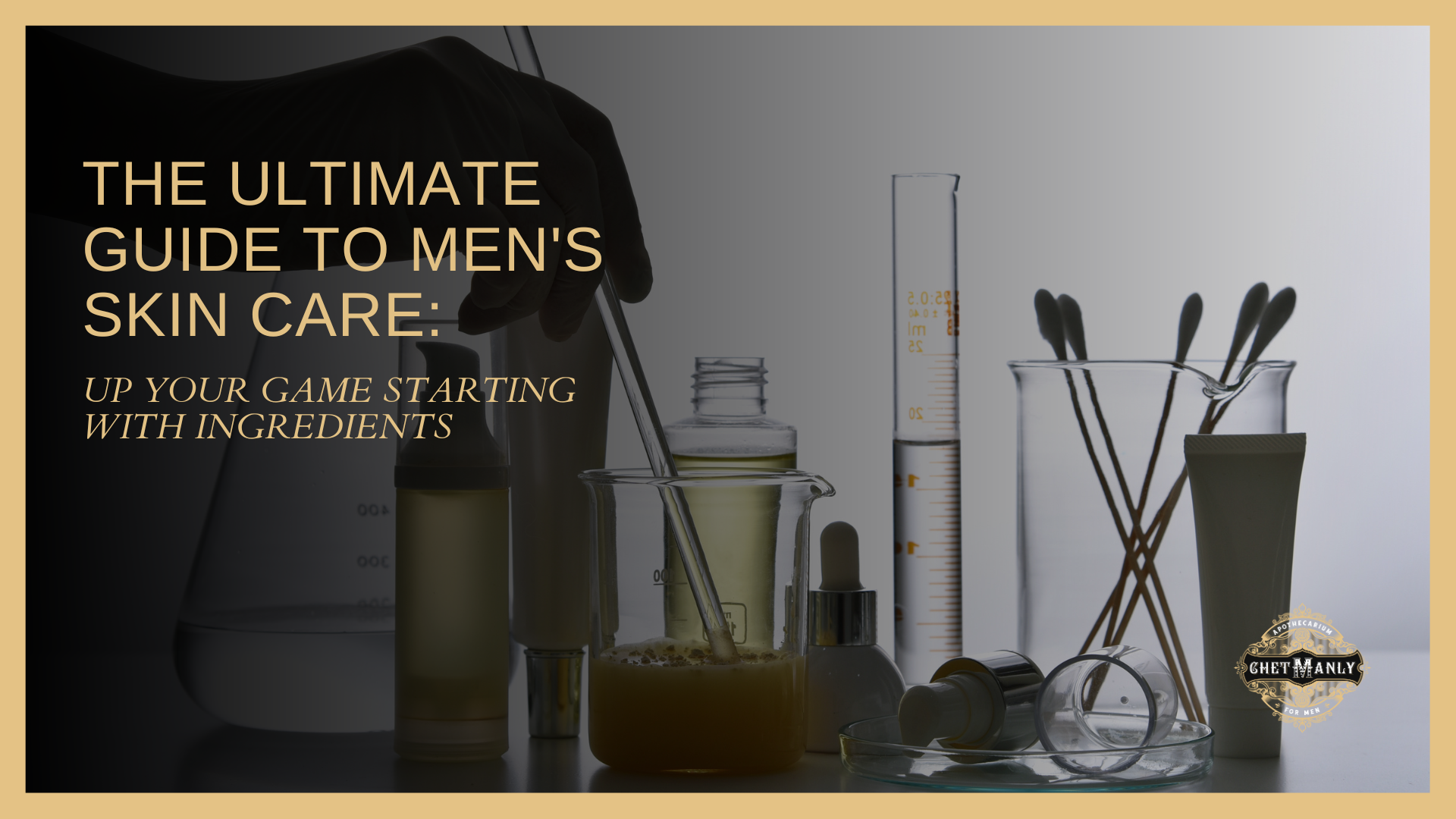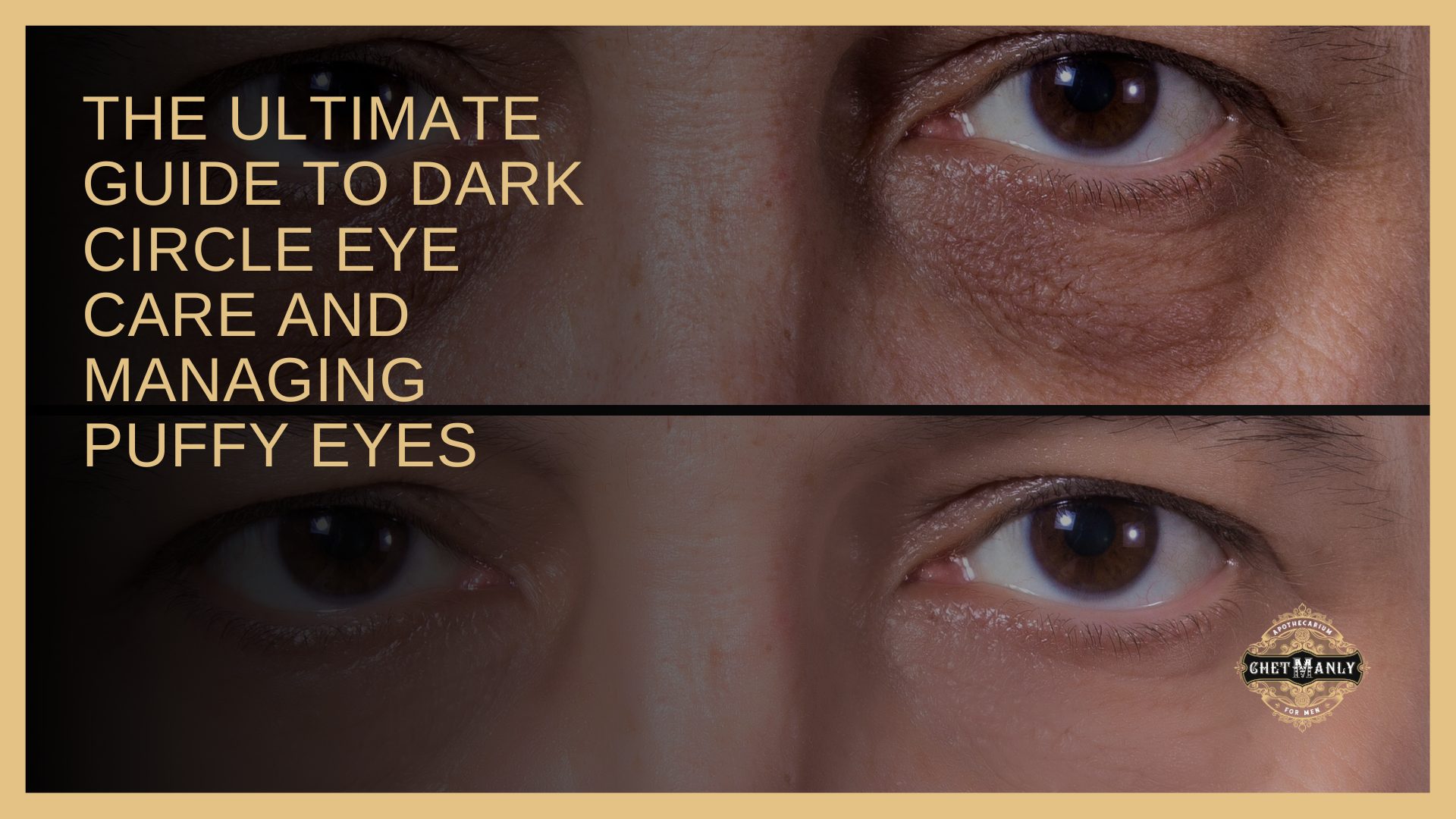

Before we delve into the specific ingredients that should form the backbone of your skincare routine, let's take a quick look at what makes men's skin unique. Yes, guys, you're special, but not just because your mother told you so. Science backs it up too!
Men's skin is, on average, up to 25% thicker than women's. It also has larger pores and produces more sebum (oil), which can often lead to a shiny appearance and exacerbate issues like acne. Men also tend to sweat more than women, affecting the pH balance of the skin.
Despite these differences, men and women can often use the same skincare products. While many products are marketed specifically to men, the reality is that effective skincare isn't about gender but about addressing specific skin concerns and types.
The first step in any effective skincare journey is knowing your skin type. This can be determined by a trip to your dermatologist or aesthetician, who can provide a thorough skin analysis.
Knowing what ingredients to look out for can help you navigate the skincare world with ease. These powerhouse ingredients are the secret weapons you should have in your skincare arsenal.
Sunscreen is the silent hero of skincare. It helps protect your skin from sun damage and reduces the chances of skin cancer. You can choose between chemical sunscreens, which absorb UV rays, and physical sunscreens, which reflect them. Regardless of your choice, make sure it's at least SPF 30.
Hyaluronic acid is a skincare superstar. It helps retain moisture in the skin, keeping it plump and hydrated. Look for it in your moisturizers and serums.
Antioxidants like vitamin C and E help combat the damage caused by free radicals, reducing signs of aging and evening out skin tone.
Retinol, a derivative of vitamin A, is a powerful anti-aging ingredient. It increases cell turnover, helps clear away dead skin cells, and can even reverse signs of sun damage.
Peptides are the building blocks of the proteins that keep our skin looking fresh and youthful. Including them in your skincare routine can help maintain the health of your skin.
Alpha and beta hydroxy acids are excellent exfoliants. They help keep your skin clear by removing dead skin cells and unclogging pores.
Ceramides help maintain a healthy skin barrier, keeping moisture in and pollutants out.
Charcoal is a great ingredient for those with oily skin. It can absorb excess oil and help reduce blackheads and breakouts.
While chemical ingredients have their place, natural ingredients can offer many benefits. Here are some of the top natural ingredients to look out for.
Rosemary extract is a powerful anti-inflammatory ingredient. It can help soothe irritation and reduce swelling, making it a great option for those with sensitive skin or those prone to razor burn.
These fruity ingredients are not just delicious but also pack a skincare punch. They offer hydration, antimicrobial benefits, and can protect your skin from sun damage.
Tea isn't just for drinking. It can also offer incredible skin benefits. Black tea can reduce wrinkles, while green tea has detoxifying effects and can help reduce inflammation.
Vitamin C is a powerful antioxidant that can boost collagen production and reduce dark spots.
Shea butter is a great natural moisturizer. It can also reduce inflammation and soothe irritation.
Hyaluronic acid is the king of moisturizers. It can keep your skin looking fresh and youthful by trapping moisture and plumping up the skin.
Knowing what ingredients to look out for is only half the battle. The next step is incorporating these ingredients into a routine that works for you. Remember, the best routine is one that you can stick to consistently.
At a minimum, your skincare routine should include the following steps: cleansing, toning, moisturising, and sunscreen. You may also want to include an exfoliant and a serum, depending on your skin's needs.
When choosing products, consider your skin type and any specific concerns you have. If you're prone to breakouts, look for products with ingredients like salicylic acid. If you're concerned about aging, look for products with retinol and antioxidants.
Skincare isn't a one-and-done deal. To see results, you need to take care of your skin consistently.
Consistency is the secret to a successful skincare routine. Try to stick to your routine every day, and you'll start to see results.
Your skincare needs can change over time, so don't be afraid to adjust your routine as needed. If you notice your skin becoming dry or irritated, it may be time to try a new product or ingredient.
If you're struggling with your skin or unsure about what products to use, don't hesitate to seek professional help.
A dermatologist can help you understand your skin type and recommend products that will work best for you.
Regular skin check-ups can help catch any potential issues early. Plus, they're a great way to check in on your skin's progress and make any necessary adjustments to your routine.
At Chet Manly, we believe that skincare should be accessible to all men. You don't need to break the bank or spend hours in front of the mirror to have healthy, happy skin. That's why we've created a range of men's skincare essentials that are simple, affordable, and effective.
We believe in simplicity and effectiveness. Our products are designed to work with your skin, not against it. We use high-quality ingredients that are proven to deliver results.
Our range includes everything you need for a complete skincare routine, from cleansers and toners to moisturisers and serums. All our products are formulated with the latest skincare research in mind, ensuring you get the best possible results.
Navigating the world of Men's Skin Care doesn't have to be daunting. With the right knowledge and a bit of patience, you can develop a routine that works for you and leaves your skin looking and feeling its best. Remember, the key to great skin isn't fancy products or complicated routines – it's consistency and care. So, put your best face forward and embrace the world of skincare with confidence.
Note: The information provided in this article is for educational purposes only. It's always a good idea to consult a healthcare professional or dermatologist before starting a new skincare regimen.


